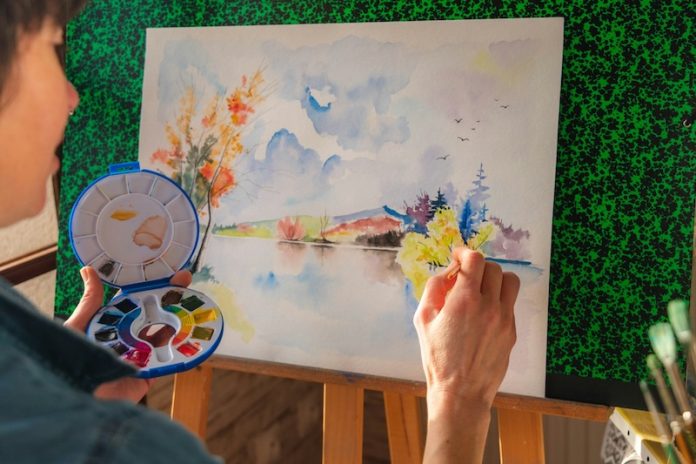
A new study from the University of Toronto suggests that doing just one new thing each day—no matter how small—can significantly improve memory, mood, and overall well-being.
This simple practice, called “experiential diversity,” could be especially helpful for older adults, including those at risk of dementia and Alzheimer’s disease.
The research, published in Scientific Reports, is the first to explore how adding fresh and stimulating experiences to everyday life might help protect the brain.
It shows that small changes in daily routines—like taking a new walking route, calling a friend you haven’t spoken to in a while, or trying a new hobby—can have powerful effects on both memory and emotional health.
According to Professor Morgan Barense, a psychologist at the University of Toronto and one of the study’s authors, living in an under-stimulating environment or feeling socially isolated are some of the biggest risk factors for cognitive decline, second only to age.
“Our results highlight the importance of providing aging loved ones with rich new experiences,” she said. “It doesn’t require much—even bringing your grandmother flowers can make a difference.”
The lead author of the study, Melissa Meade, carried out the research as a postdoctoral fellow in Barense’s lab. She’s now a professor of psychology at Huron University College.
The study involved 18 healthy adults with an average age of 71. It took place during the summer of 2020, when pandemic lockdowns led to more isolation and routine than usual—a perfect time to study how new experiences affect memory and mood in older people.
For eight weeks, participants were encouraged to seek out and record unique daily experiences using a neuroscience-based smartphone app called HippoCamera. The app is designed to mimic how the brain’s hippocampus—a part of the brain that plays a key role in forming memories—stores and recalls information.
Using the app, participants recorded memories of moments they wanted to remember, along with how they felt, how bored they were, and how time seemed to pass. The researchers then analyzed how these new experiences related to emotional well-being and memory recall.
The results were clear: when participants engaged in new and different activities, they felt happier, more mentally stimulated, and less bored. They also remembered those days better. Importantly, they reported that time felt like it passed more quickly—a common sign of improved mood and engagement.
The team collected data from 670 unique experiences, ranging from small changes like walking in a different park to trying a new recipe. This helped them build a strong link between experiential diversity and better brain health.
The researchers also found that the brain responds to new experiences in a very specific way. Novelty activates the hippocampus, which in turn triggers the striatum—a brain region connected to motivation and reward. This helps explain why new experiences not only improve memory, but also boost mood and increase the desire to stay engaged with life.
Interestingly, the people who felt the biggest emotional boost from new experiences were those whose brain scans showed stronger connections between their hippocampus and striatum. This finding supports the idea that memory, emotion, and well-being are closely connected.
This new research builds on the team’s earlier findings. In 2022, they showed that using the HippoCamera app to replay recorded memories helped improve memory recall by more than 50% on average.
Now, Barense and her team are planning to bring the HippoCamera to people living in long-term care homes. They hope to explore how encouraging new experiences and replaying memories can help older adults live more mentally and emotionally fulfilling lives.
“Older adults living alone or in care homes often experience loneliness and boredom,” Barense said. “It’s important to support them in seeking out moments of novelty that are essential to a happy, mentally active life.”
This study offers a powerful but simple message: new experiences, even small ones, can improve brain health. While the study involved only a small group of older adults, the findings were clear and consistent. The more variety people added to their daily lives, the better they felt—and the better they remembered those days.
Importantly, the benefits of experiential diversity aren’t limited to the elderly. Although the research focused on older adults at risk of cognitive decline, the idea that novelty improves memory and mood likely applies across all ages. Everyone can benefit from breaking out of their routine now and then.
As scientists continue to search for ways to prevent Alzheimer’s and other memory disorders, studies like this one suggest that lifestyle habits—such as staying socially and mentally engaged—could be just as important as medical treatments.
And best of all, it doesn’t require money, travel, or special equipment. Just a small change each day might help keep your brain and heart healthier in the long run.
If you care about brain health, please read studies about how the Mediterranean diet could protect your brain health, and Omega-3 fats and carotenoid supplements could improve memory.
For more information about brain health, please see recent studies about antioxidants that could help reduce dementia risk, and higher magnesium intake could help benefit brain health.
The research findings can be found in Scientific Reports.
Copyright © 2025 Knowridge Science Report. All rights reserved.



